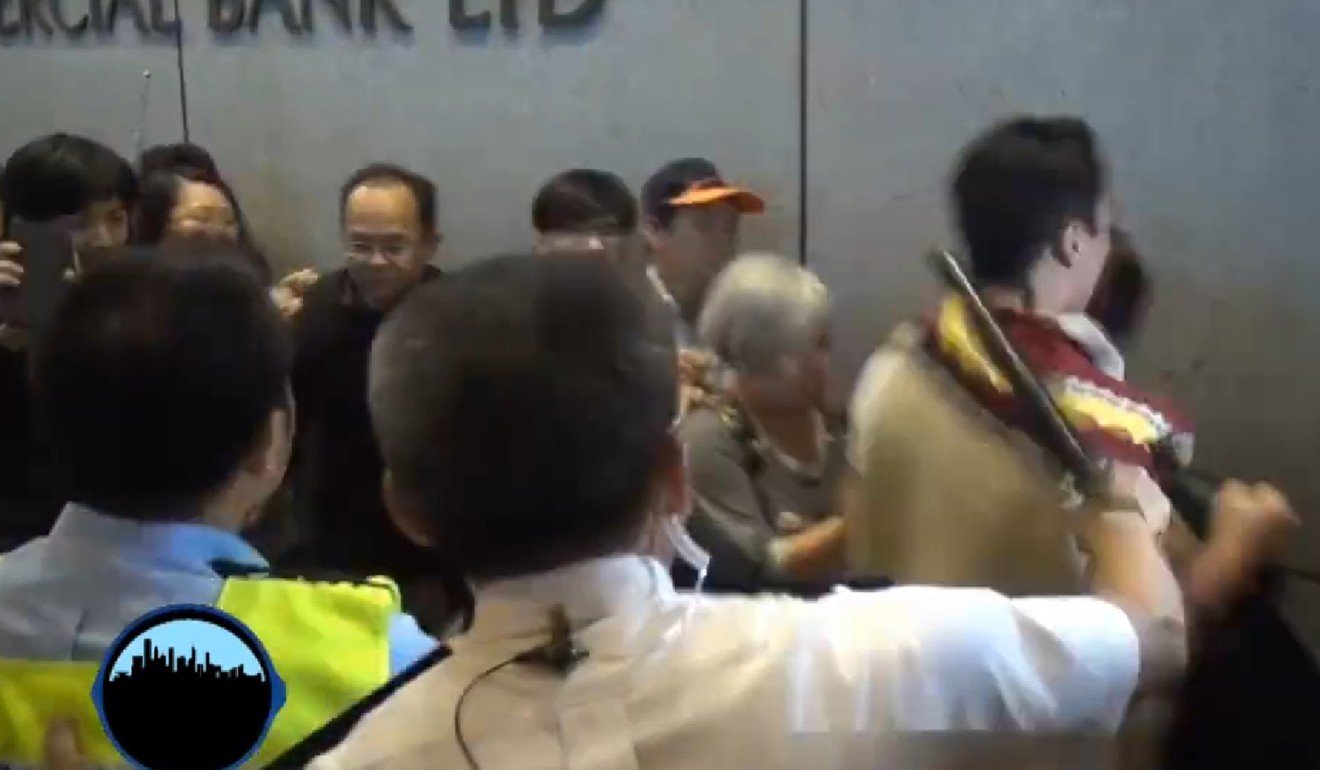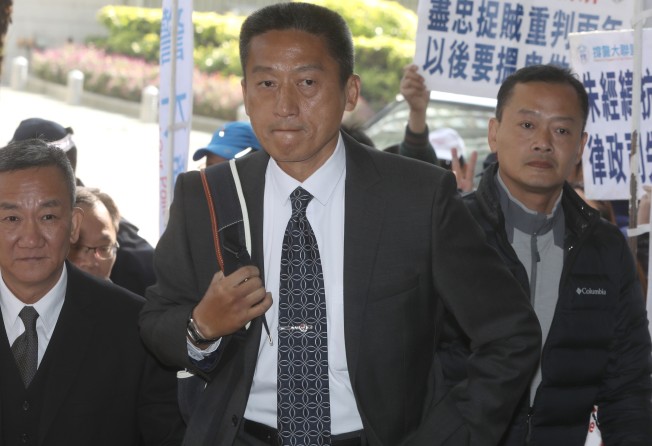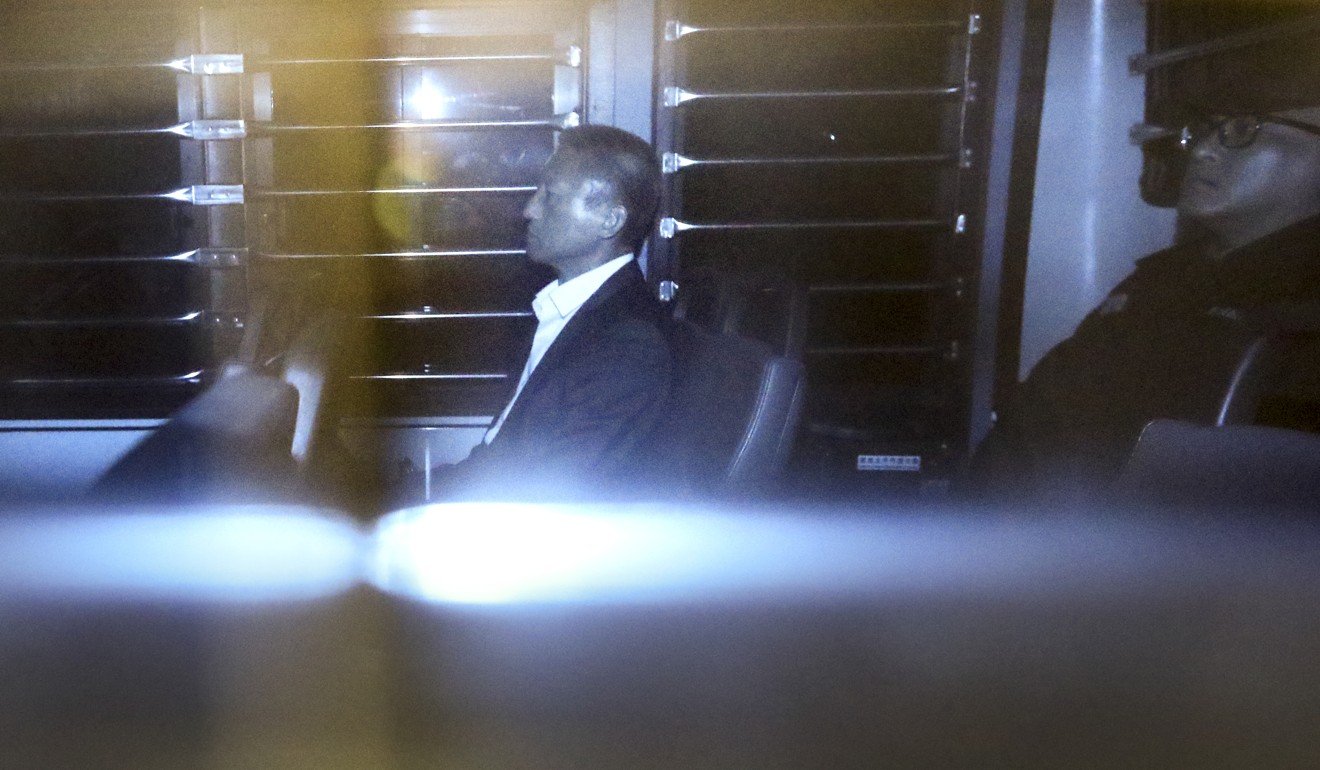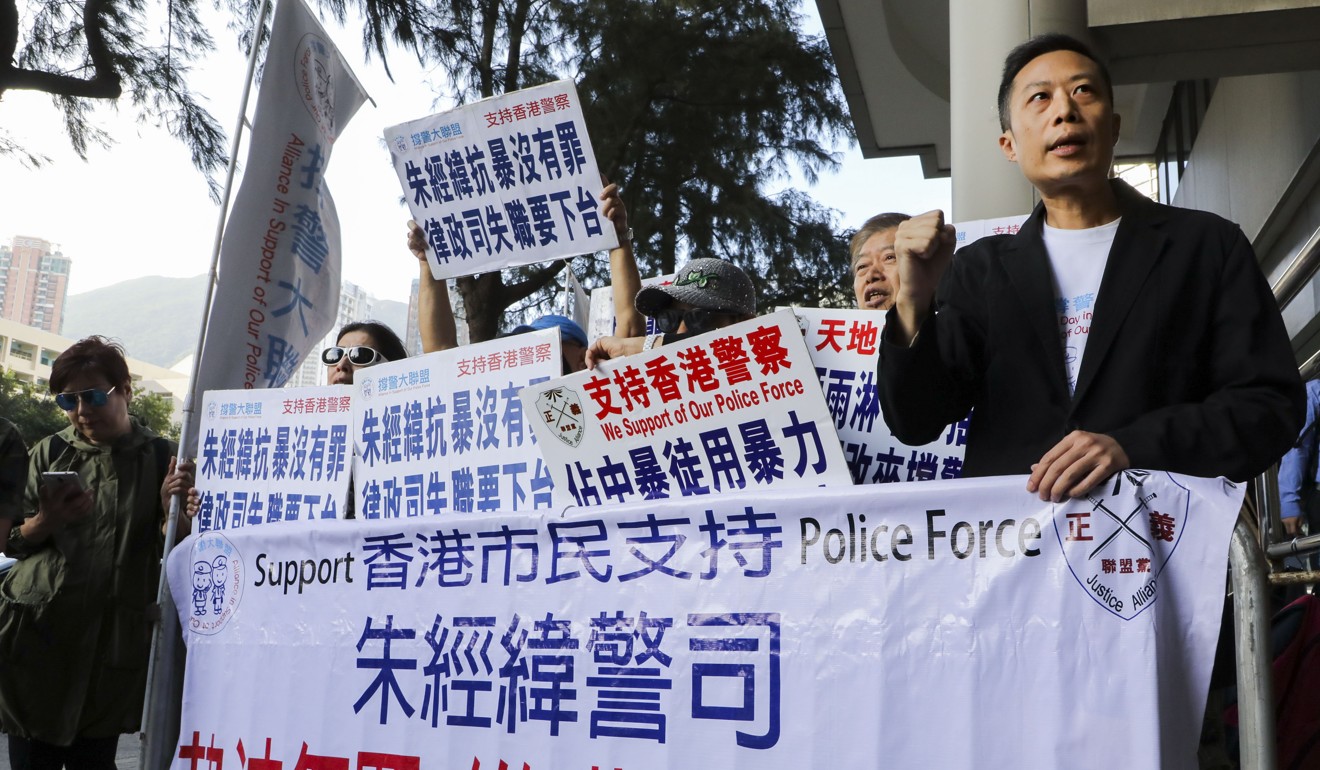
Ex-policeman guilty of assaulting Hong Kong Occupy protest bystander with baton in 2014
Former superintendent convicted three years on from incident in busy Mong Kok shopping district

A retired police superintendent was on Monday found guilty of assaulting a bystander at a 2014 protest in the aftermath of Hong Kong’s pro-democracy Occupy movement.
The judge in the case ruled it was “unacceptable” for Frankly Chu to justify hitting a pedestrian with a baton by claiming the man had been hostile.
The verdict was the second time a court had ruled against officers in a criminal case for using excessive force in policing the city’s 79-day demonstrations, which shut down major roads three years ago.
Former senior police officer Chu, 57, was convicted at Eastern Court of one count of assault occasioning actual bodily harm. He was remanded in custody pending sentencing on December 29, meaning he will spend his birthday – on Christmas Day – in prison.
Principal Magistrate Bina Chainrai sought a background report on Chu and a report on his suitability for community service. But she noted that at the time of the incident, Chu was a senior serving police officer.
“I think it’s a serious offence,” she said.
Chu attacked bystander Osman Cheng Chung-hang near Shanghai Commercial Bank on Argyle Street with a 25cm baton weighing 350 grams on November 26, 2014, when police were carrying out an operation to prevent protesters from reoccupying the busy shopping district of Mong Kok.

The area was a major protest site in Kowloon for the Occupy movement until it was cleared shortly before the assault.
The Occupy protests, which began on September 28, 2014, saw thousands of Hongkongers take to the streets to block major thoroughfares in an attempt to get concessions from the government on democratic reform.
In February this year, seven police officers were convicted of assaulting high-profile activist Ken Tsang Kin-chiu, who was beaten near another protest site in Admiralty, Hong Kong Island, in an assault caught on a televised broadcast.
Chu claimed during his trial that he had seen Cheng talk to one of his colleagues, which had given him reason to believe the bystander was being aggressive and hostile. He testified that he therefore had to hit Cheng with minimum force to make him comply amid an unruly crowd.
But, calling Chu’s account “invalid” and “unacceptable”, Chainrai said on Monday that she had viewed video footage provided by the court consistent with what Cheng said in his testimony.
She said there was no “unruly” crowd at the scene as Chu had claimed. Nor was Cheng, who was entitled to be there, doing anything aggressive.

“It’s quite clear he did not do anything described as hostile,” she said.
Chu hit Cheng with more than the minimum force needed, a fact which could be gleaned from the painful reaction Chu displayed in video clips, she said.
“The baton was raised to a considerable height to hit [Cheng],” Chainrai said.
Cheng, whom the judge called a credible prosecution witness, said he had only been passing by Argyle Street when he was kicked in the shin and felt blows to his neck and elbows. He later reported it to the police after he saw Chu on news footage, which was used in court against the officer.
The case hinged on whether the force that Chu used was reasonable and whether he believed it to be so. Prosecutors said Chu’s actions were an act of “revenge” against protesters by the policeman of 37 years.
But Chu and his lawyer Peter Pannu argued his actions were reasonable, saying Cheng had been aggressive and non-compliant at the time.
Pannu suggested the baton hit Cheng’s shoulder blades instead of his neck, while Chu in court admitted hitting him and offered a casual apology.
Chu, clad in a grey suit, sat behind his lawyers and fiddled with his fingers under the table calmly as he listened to the magistrate reading the verdict over an hour and a half. He did not show any emotion when he heard he had been found guilty.
In mitigation on Monday, Pannu said Chu “genuinely and honestly believed he was upholding the rule of law”.
“Is that acceptable?” the magistrate hit back.

The defence counsel went on to say: “[Chu] has served the community very diligently and to wrap up his career in this fashion is a very, very sad day for him.”
Pannu asked the magistrate to distinguish the present case from the convictions of the seven policemen by considering a community service order or suspended sentence.
As his former colleague, I feel very disappointed. He did not personally know Cheng and surely did not have any motive to attack him
Jimes Lee Jim-on, chairman of the Hong Kong Police Inspectors’ Association and Chu’s former colleague at Central police station 17 years ago, said he was upset and disappointed with the verdict.
“As his former colleague, I feel very disappointed. He did not personally know Cheng and surely did not have any motive to attack him. He was just carrying out his duties. Of course I wish the court had not found him guilty.”
Lee described Chu as a cheerful person who treated colleagues very well.
“It all happened during the illegal Occupy movement in 2014. It is a tragedy for Hong Kong. Everyone is a loser,” Lee said.
Outside court, reaction from Chu’s supporters was fiery, with a crowd of at least 30 raining down verbal abuse at the judge. They called her a “dog”.
“Oppose foreign judges ruling Hong Kong,” they said. Chainrai, who was born in India, went to university in Hong Kong before a legal career in the city of more than 30 years.
Chu had been drawing HK$57,000 per month from a police pension on top of a lump sum of HK$3.2 million he received upon retirement in July 2015. That pension could be in jeopardy following his conviction.
After the verdict, Cheng said he expected Chu to appeal. “But at least there is justice for now,” he said.
He said he had not contemplated a civil claim as doing so would merely be a matter of money. The most important thing, he said, was that he had seen justice done in a criminal court.